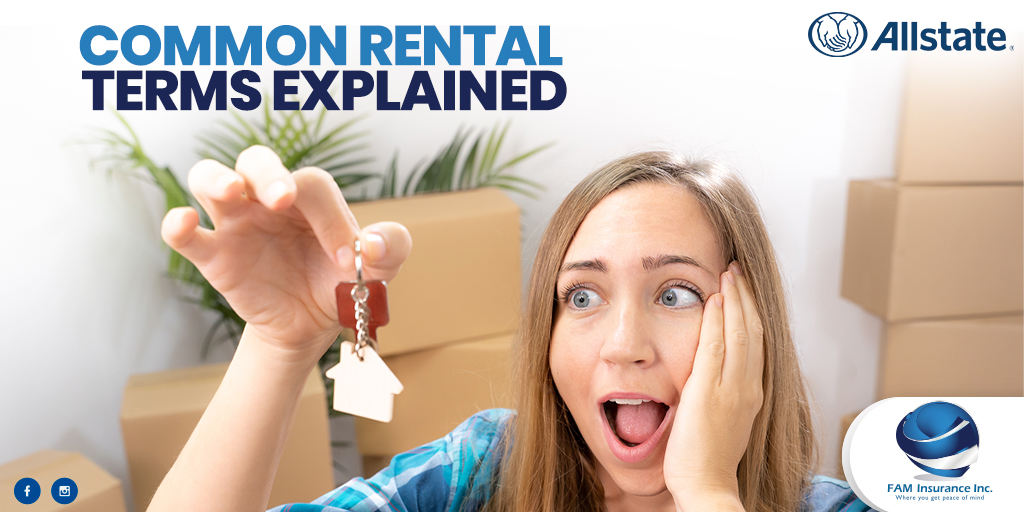Whether you’re a first-time renter or a seasoned apartment dweller, you will likely have to sign a lease before you move in. Because a lease is a legal document, it includes terms that are not used in everyday conversation. You want to fully understand them – particularly if you are a first timer. A lease will also tell you what you can and cannot do in your apartment, according to NOLO.com.
Here’s an overview of terms that will help clarify what your lease entails.
Lessee and lessor
Throughout the rental lease agreement, you will see the terms “lessee” and “lessor.” These terms are placeholders used instead of specifically naming the two parties involved, according to Investopedia. They explain that you are the lessee, or tenant, and the property owner or management company is the lessor.
Lease renewal
Your lease should include information regarding what needs to be done if you want to renew your agreement after the initial time period has passed, says Investopedia. They say that sometimes you can renew your lease for the same length of time, or the landlord may offer you the option of renting on a month-to-month basis.
Security deposit
According to Apartments.com, you will likely have to pay a security deposit as proof of your intent to move in and take care of the place. They explain that the security deposit is calculated based on state laws, the cost of monthly rent, the type of amenities that are available and what the rental application reveals about the tenant. Security deposits can be refundable or not, depending on the terms of the lease and the condition the renter leaves the rental property in, Apartments.com adds.
Grace period
In many cases, rent is due on the first of the month, but there may be a grace period before rent is considered “late,” says RentPrep.com. They explain that the grace period depends on state laws and what is stated in the lease, but it could be up to five days. RentPrep further notes that once that grace period has expired, there will likely be fees added on to the price of rent. The lease usually includes how long the grace period is every month. It should also explain the financial consequences of paying rent late specific to the property you are renting, says RentPrep.
Eviction
An eviction is the legal process a landlord or property owner uses to remove the tenant from the property, terminating the lease early, according to TheBalanceSMB.com. An eviction takes place as a result of certain conditions, which should be described in your lease, they explain.
According to TheBalanceSMB, some of the common situations that can lead to the start of the eviction process include nonpayment of rent, causing damage to the property, having a prohibited pet, taking part in some illegal activity or otherwise violating the terms of the lease.
Sublease
It may not seem like a big deal to let a friend move into your spare bedroom, but the legal term for this is subleasing, according to Investopedia.com. They define subleasing as re-renting a property to another party for a portion of the existing lease. Your lease will have rules about this, they explain. It may specify that you can have a friend stay with you for a certain amount of time, according to iPropertyManagement.com, but they need to be added to the lease if that time is exceeded. Keep in mind that if your live-in guest is not on the lease, you’ll be responsible for any damage they do.
Decorating
The rules regarding decorating vary widely from property to property, says RentecDirect.com. Be sure to read these rules carefully so you understand the restrictions. They explain that prohibitions may include things like no holes in the walls, no painting and no changing of fixtures. These are usually written into the lease to prevent the property from being damaged. If you go against these rules, you may lose your security deposit, says Rentec Direct.
Rent increases
Your lease should outline when the property has scheduled rent increases, according to ApartmentGuide.com. Often, rentals raise rents when the lease renews, they explain, so make sure you know what to expect so you can budget accordingly.
Pet policy
Your lease will dictate whether you can have pets. RentCafe.com also notes that your lease should outline any breed restrictions and whether additional costs are associated with having a pet. If your lease does not allow pets, don’t bring one into your home, recommends The American Kennel Club (AKC). If you have a pet that is not allowed according to your lease terms, the ramifications can be serious, in that you might have to move or surrender the pet, says the AKC.
Renters insurance
If you come across this term in your lease, it usually means the property manager requires renters insurance.
Although your landlord likely has insurance on the property itself, this will not help you if disaster strikes. Landlord insurance covers the structure of the building, but not your belongings.
Renters insurance protects you as well as your belongings. If your personal property is stolen or damaged by covered events involving fire, smoke, water, windstorms, lightning or vandalism, a renters insurance policy can help pay to repair or replace your stuff.
Final steps
Before you sign your lease, tour the apartment or home with your property manager, advises NOLO. Note any existing damage or other conditions that could affect getting your security deposit back. Point out if there is anything that needs fixing before you move in. Once you are happy with everything, it’s time to sign on the dotted line and start packing for your upcoming move.

